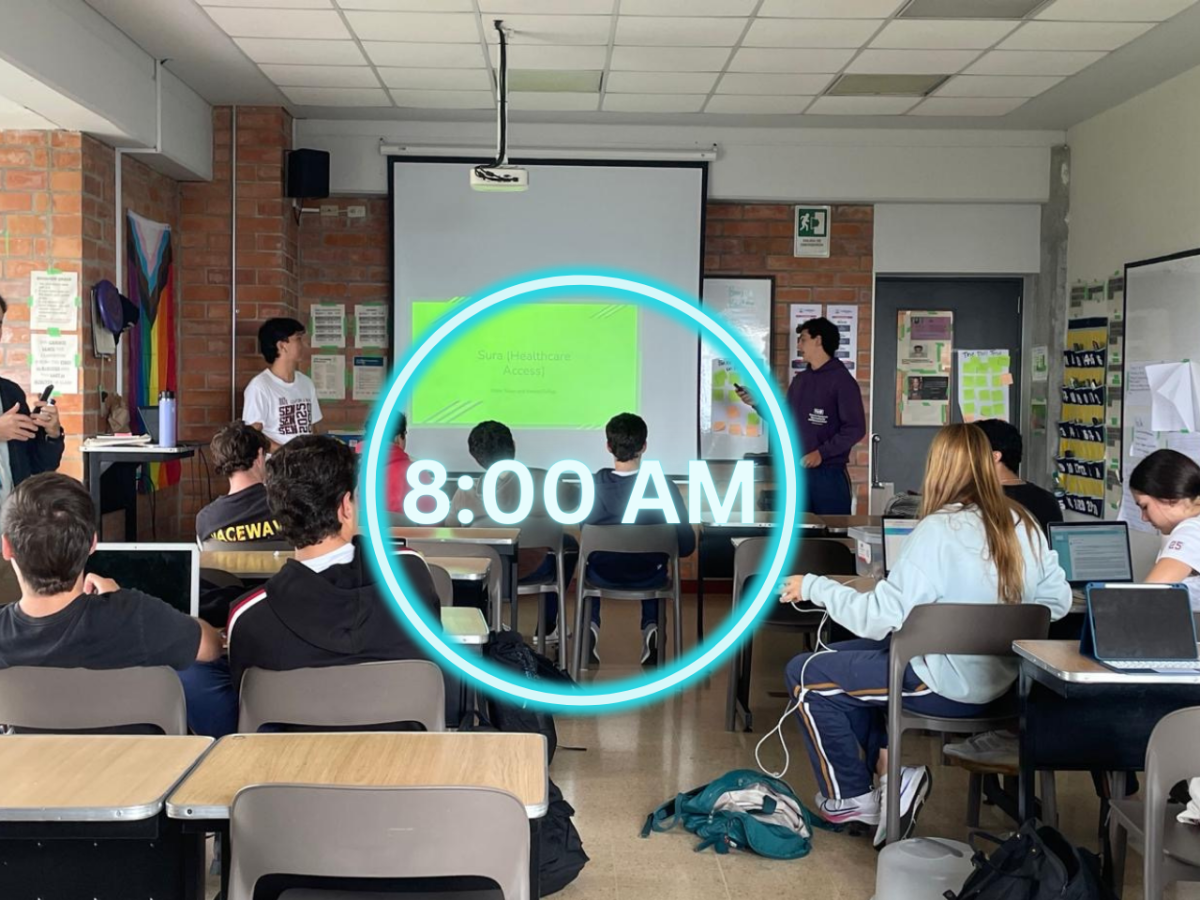The sound of alarms fills every student’s bedroom as they prepare for another school day. For some, the 8 AM school start time is amazing and fits perfectly into their routine, but for others, it brings challenges that affect their sleep, focus, and daily activities.
The school’s start time has started conversations about whether 8 AM aligns with students’ needs. Some students say it’s the best time, while others feel there could be adjustments in order to optimize students’ energy and focus throughout the day. Some sleep experts like Matthew Walker, author of the book Why We Sleep, have expressed how teenagers have a biological tendency to go to bed later and wake up later, which connects with the importance of aligning school schedules with natural sleep cycles.
“I think it’s a bit late. If it was 7 AM, it could work better with my schedule,” Pedro Florez, senior, said.
Florez has built a consistent and disciplined sleep routine to perfectly manage his mornings, using strategies like putting his phone on sleep mode and setting alarms. Still, he admits that his energy during the day can sometimes rely partly on caffeine.
“Yes, but I find that caffeine also helps with the energy part,” Florez said.
For students who live farther from school, it’s different. For example, Senior Emilio Agudelo. Agudelo lives in El Retiro and in his mornings he has additional challenges, such as long distances and unpredictable traffic in El Retiro’s toll.
“At the beginning, it did feel very early, but now it feels kind of good,” Emilio Agudelo, senior, said.
Agudelo has now perfectly adjusted to his schedule after some time. But even still, he recognizes that students with similar distances can have greater difficulties with their sleep which affects their academic performance. When asked if he thinks students who live far from school have a disadvantage.
“They are because they have to wake a lot earlier, and it can affect their ability to study,” Agudelo said.
For students living closer to school, the experience is different but pressures and challenges are not completely eliminated. Camila Barrera talks about how living near school means she gets more sleep compared to other students, but her mornings often feel rushed and stressful.
“My day starts with a family member saying we are going to be late to school, and then it becomes an argument,” Camila Barrera, 10th grader, said.
Challenges can be beyond the morning rush. Barrera explained how students, when balancing activities, homework, and personal time, can leave less space to sleep than recommended, leaving her tired during the school day.
“I don’t think that many students get enough time, because their evenings are really busy. When they get home, they start doing their work late,” Barrera said.
Some use afternoon activities to study and do personal activities, which makes them believe that the current start time works for most students.
“I think 8 AM works for most students, so I think they should keep it,” Florez said.
However, Barrera has a different perspective, suggesting that a later start time could impact students’ lives for the better.
“I think we should start at 9 AM because, with that schedule, students would have a lot of time to sleep and get ready, so they can have a happier life,” Barrera, said.



